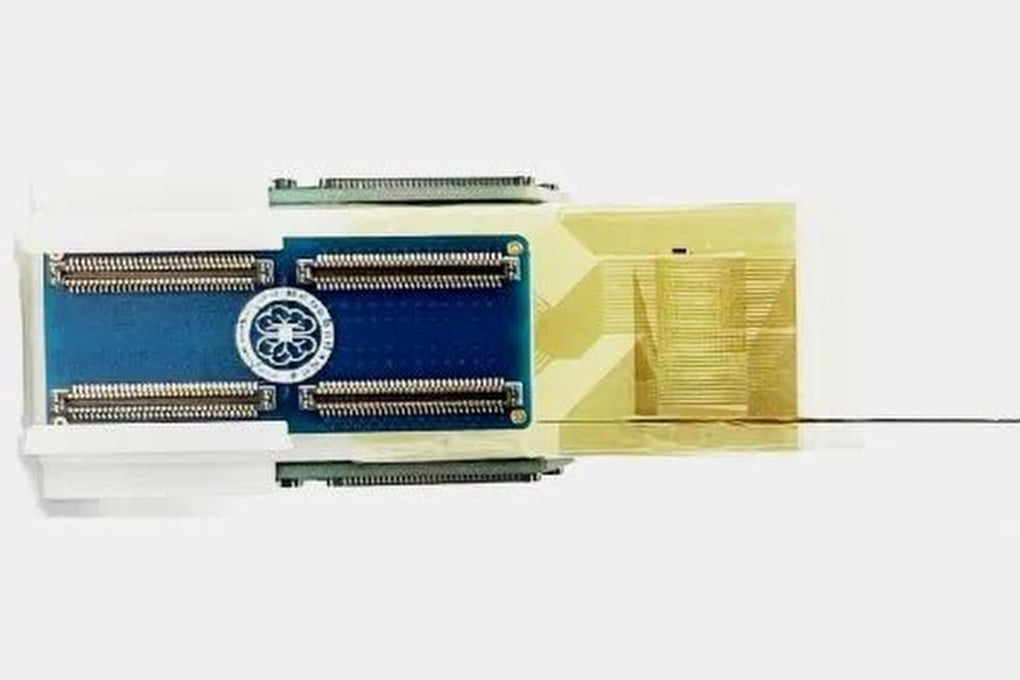Chinese neural probe could have ‘transformative impact’ on brain-computer interfaces
- Unprecedented simultaneous brain recordings hold new promise for understanding relationships between neural activity and behaviour

Bold new Chinese research in the field of neural probes has helped break through the boundaries that separate humans and machines, and could have a “transformative impact” on brain-computer interface (BCI) technologies, an expert said.
Researchers at Peking University and the Shenzhen-Hong Kong Institute of Brain Science have used a device called a Neuroscroll probe to separate single neural activities of macaque monkeys from 1,024 tightly spaced channels simultaneously.
The key to the BCI performance lies in the accurate capture and decoding of a large number of EEG signals – or electroencephalography.
“The Neuroscroll probe length is easily tunable for individual probes from 10mm (0.4 inch) to 90mm, covering the brain sizes of non-human primates and humans, and the probes remain intact and functional after repeated bending deformations,” the team wrote in a peer-reviewed paper published in Nature Neuroscience on Monday.
The probe also achieved stable neural recordings in rat brains for up to two years, showing excellent biocompatibility and long-term recording stability, state news agency Xinhua reported.
